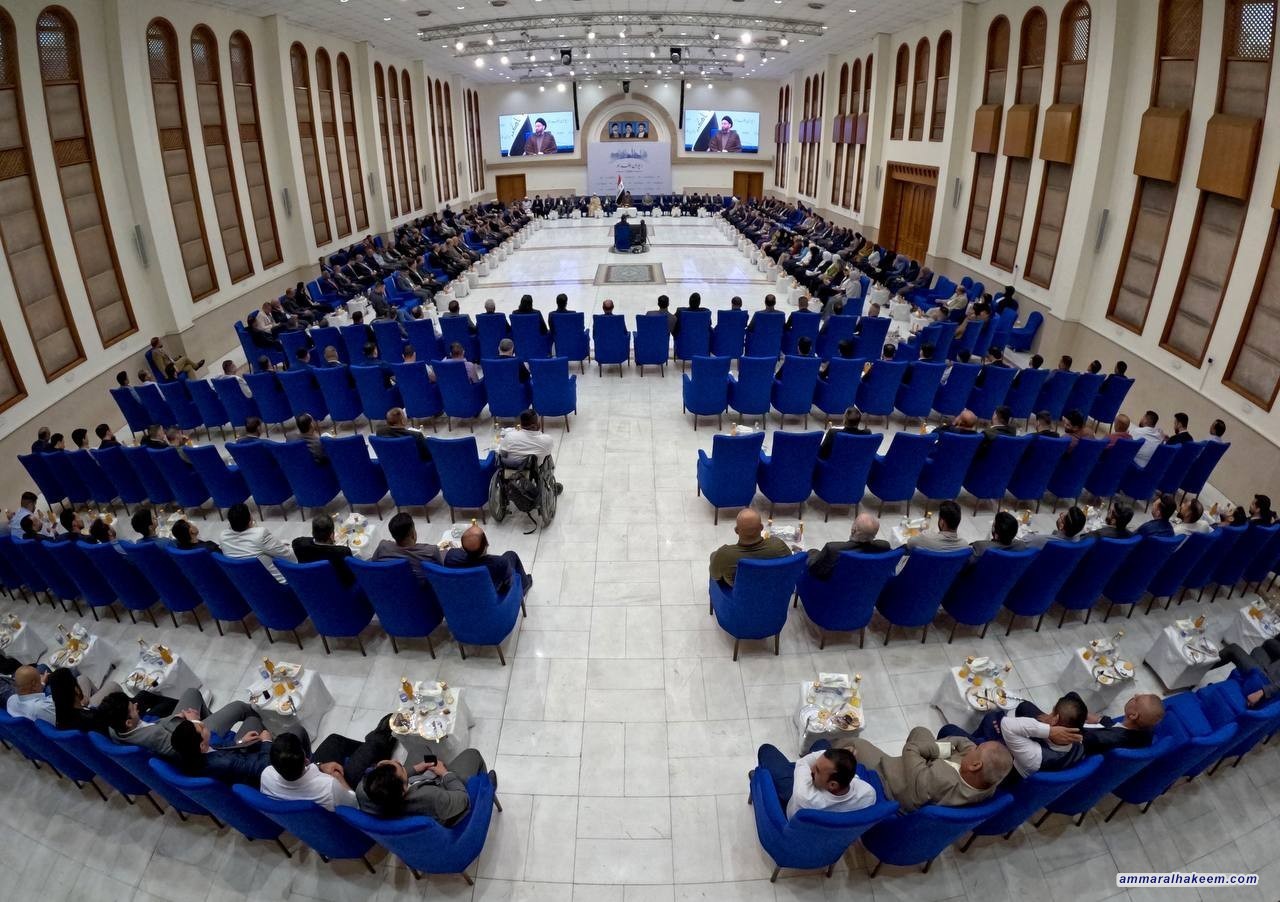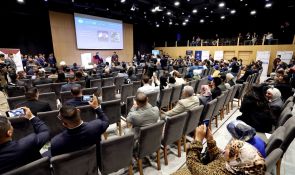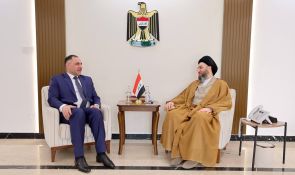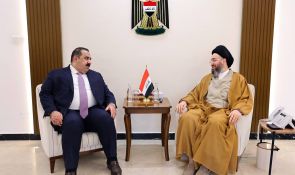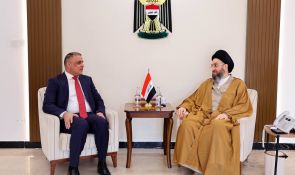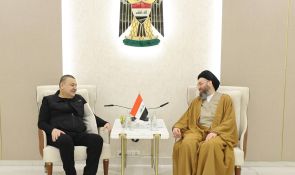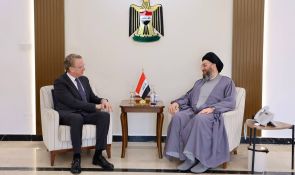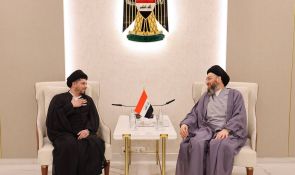Sayyid Al-Hakeem: israeli speaks of 'New Middle East' Indicate working plan before October 7
At the Baghdad Forum for political, social, media, and academic elites, after listening to the contributions of the attendees, His Eminence Sayyid Ammar Al-Hakeem, leader of the National State Powers' Alliance, remarked that the crisis in Palestine is not merely a result of the events following October 7 but stems from a long history of israeli escalations against the Palestinians. H.E. explained that Israel has disregarded all international resolutions in favor of Palestine. Wars, he noted, are judged by whether they achieve their declared objectives. For states, success is measured by this standard, while resistance groups and armed movements, can remain effective despite pressures. Thus, destroying cities does not equate to victory, as Hamas continues to exist and can still strike Tel Aviv, while Israel has been unable to retrieve its captives. The attempt to target Sinwar was merely incidental.
His Eminence further noted that israel has not yet achieved its objectives in Lebanon. It has failed to return displaced residents to the north, and their numbers continue to increase. Meanwhile, cities such as Haifa, beyond Haifa, and Tel Aviv, including Netanyahu’s headquarters, remain under threat. H.E. emphasized that battles do not end with the martyrdom of leaders, as history has shown, citing martyrs like Sayyid Abbas Al-Moussawi and others. His Eminence pointed out that israel’s excessive actions in the war and its talks of a "New Middle East" suggest that a project was being planned even before October 7.
His Eminence highlighted Iraq's political, media, and humanitarian role, emphasizing the significant support Iraq has provided on governmental, religious, and popular levels. H.E. noted the unprecedented stability Iraq now enjoys politically, socially, and security-wise, urging a comparison between Iraq’s past and present. H.E. stressed the importance of local governments as a constitutional and legal reality and a pillar of social justice, calling for their support and success. H.E. also emphasized the distinction between provincial projects and federal government projects.
His Eminence called for attention to the step of ending the international coalition and transitioning to bilateral relations. H.E. also stressed the need to build self-reliance to enhance sovereignty and protect Iraq’s airspace, while advocating for broad participation in elections to strengthen the political system. H.E. expressed confidence in the awareness of the Iraqi people, emphasizing the need to preserve the rights of all groups by protecting their representatives. H.E. also called for a separate voter registry for minorities alongside a unified electoral law for provincial councils and the parliament, with possible adjustments if necessary.
His Eminence stated that the current electoral law ensures a balance between seats and votes, warning of the impact that individual candidacy could have on emerging political powers. H.E. emphasized that Iraq’s strength lies in its diversity, and managing this diversity is essential for building bridges with regional and global countries through Iraq’s communities. H.E. reiterated that Kirkuk belongs to its people, and any solution that ignores its diverse communities will fail, noting that the current balance in Kirkuk ensures fair representation.
H.E. affirmed that peaceful protest is a constitutional and legal right, but expressed opposition to protests that block roads or disrupt offices. H.E. warned against turning protesters into tools for economic or political extortion. His Eminence emphasized that the best defense against challenges is unity in stance and word, urging the development of capabilities in artificial intelligence and harnessing youth potential. H.E. acknowledged that Iraq lags in this area, despite the benefits these technologies bring in saving time and improving services. H.E. also called for attention to the Programmers Law and pointed out a consensus regarding selecting a new Speaker of Parliament.

